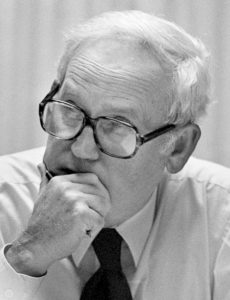After I retired from The News & Observer in October 2008 I went to work full-time for a law firm. Two years, eight months later, when that case was settled, I began working part time for other lawyers, always on the side of plaintiffs or, in one criminal case, defendants.
I was paid to read and make suggestions.
After a lawyer files suit he or she goes fishing, looking for the proverbial “smoking gun.” They force the other side to turn over boxes of records, thousands of pages, sometimes hundreds of thousands of pages — emails, invoices, letters, reports, expense accounts, test results, text messages, transcripts, memos, and on and on.
Day after day I would sit in my office at home and read, marking documents that were interesting with postie notes, documents I thought my employers could use to punish the other side. And then I made suggestions, people I thought they should depose, and questions they should ask. The lawyers I worked for did as they pleased, of course, acting on my suggestions or ignoring them.
That work was a lot like the work I did for 35 years as an investigative reporter, where I acquired and read beaucoup government records — a train load. No, two train loads.
A lot like but not the same in two important ways:
When I was a newspaperman I asked the questions. When I worked for lawyers I was not allowed to personally question anyone, to depose witnesses, because I am not an attorney.
More importantly, when I was a newspaperman and I found wrongdoing, I wrote about it in my newspaper and, sometimes, something got done about it.
When I worked for lawyers I discovered things that would set your hair on fire, so to speak. But my lips were sealed — I was required to sign non-disclosure agreements as a condition of employment.
It’s been hard, keeping my mouth shut. Really hard.
I decided, finally, that this was payback. Not being able to put those stories in the paper was my punishment for whatever bad things I had done and hadn’t already been punished.
Coming Monday: Algonquin! A Dream Come True
